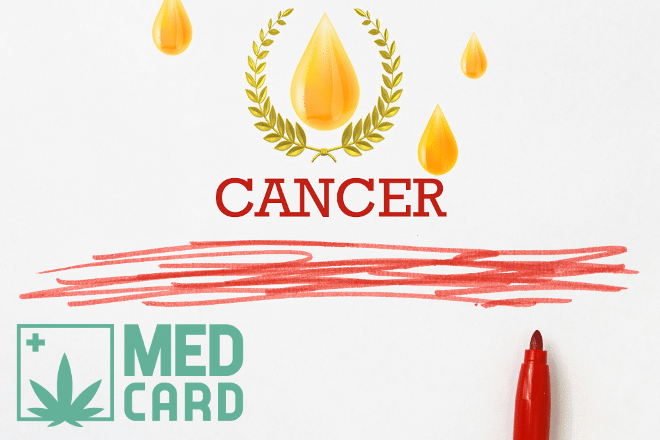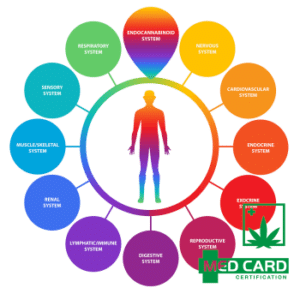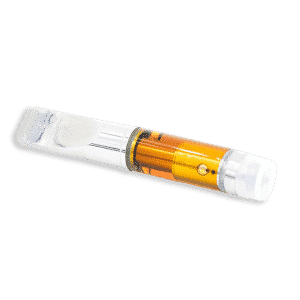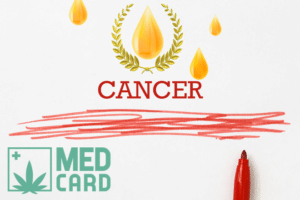
How CBD Helps Treat Cancer
- CBD offers cancer patients a safe and effective treatment for pain, nausea, anxiety, and depression
- How CBD affects cancer
- Studies on CBD and cancer
- Ways cancer patients use CBD products to treat pain and nausea
- CBD-rich hemp strains for pain and nausea
Can CBD be used to treat cancer? Hemp-derived CBD (cannabidiol) — the non-intoxicating cousin of THC found in marijuana — is swiftly gaining a reputation for its ability to relieve pain and nausea associated with cancer treatment and also to mitigate anxiety and depression that often accompany a cancer diagnosis.
Nausea is undoubtedly one of the worst side effects associated with chemotherapy, and many of the anti-nausea medications on the market cause unpleasant side effects and such as extreme drowsiness, constipation, brain fog, and a host of other complications.
On top of that, CBD may also regulate the cellular processes involved in cancer proliferation and may slow the progression of tumor growth.
The best part is that, unlike medical marijuana, anyone can buy CBD online without the need for a medical marijuana card.
How does CBD oil help relieve the side effects of cancer treatment?
A sudden release of a chemical called serotonin is thought to induce nausea and the urge to vomit. CBD is believed to prevent nausea by regulating the uptake and production of serotonin.
In the publication titled: Cannabinoids: the lows and the highs of chemotherapy-induced nausea and vomiting, some surprising data was revealed. In the study, CBD appeared to relieve chemo-related nausea and vomiting by working with the human endocannabinoid system (ECS) to regulate serotonin levels in the small intestine.
Another recent publication from the European Journal of Pharmacology concludes:
“In humans and animal models, plant-derived cannabinoids, synthetic cannabinoids, and endocannabinoids inhibit emesis [vomiting] evoked peripherally or centrally with drugs or natural stimuli. Cannabinoids block both acute and delayed emesis. We believe that the endocannabinoid system has the potential to be used for the treatment of nausea and likely as an adjunct therapy for the treatment of emesis, particularly delayed emesis, where current therapies are limited in their degree of efficacy.”
CBD is also believed to interact with the ECS to effectively block chemical messages known to exacerbate the inflammatory response resulting in chronic pain. It is also thought to interact with vanilloid receptors in specific areas of the anatomy to reduce inflammation.
In a collection of cannabis-research studies from a 2009 review titled, “Cannabinoids as novel anti-inflammatory drugs,” the authors note:
“Overall, cannabinoids have exhibited the significant potential to be used as novel anti-inflammatory agents and specific targeting of CB2 receptors holds the promise of mediating immunosuppressive effects without exerting psychotropic side effects.”
Terpenes and the “entourage effect”
Cannabis also contains another category of active compounds known as terpenes that work in tandem with cannabinoids. These oily compounds give cannabis strains their distinctive flavors. The combined effect of CBD and terpenes found in hemp flower clusters (buds) can be greater than the sum of their individual effects. This combined effect is known as the entourage effect.
Terpenes believed to help with nausea, pain, anxiety, and depression include myrcene, pinene, limonene, and caryophyllene.
- Myrcene is the most common terpene found in cannabis. It has an earthy and spicy aroma and is dominant in mangoes and lemongrass. A 1990 study determined that myrcene can relieve pain in mice. And recent animal studies found it to be useful in the treatment of anxiety. Myrcene has even shown potential as a muscle relaxant. It is also known to relieve nausea.
- Pinene is the most common terpene in nature. It’s found in rosemary, conifer trees, orange peels, and of course, pine needles. Pinene is believed to have a range of therapeutic effects that may help with anxiety, inflammation, and pain.
- Limonene is found in lemon, orange, and juniper. This powerful terpene is thought to fight inflammation, alleviate anxiety and depression, relieve nausea and stimulate the immune system.
- Caryophyllene is found in rosemary, cloves, and hops and is one of the most effective terpenes for pain and nausea. Studies have also shown that caryophyllene enhances the pain-relieving qualities of low-dose morphine. Additionally, a 2013 study found that the administration of caryophyllene was able to reduce pain in mice.
Strains of cannabis that produce these terpenes include:
- Sour Diesel
- Bubba Kush
- Girl Scout Cookies
- Super Sour Diesel
- Berry White
- Super Lemon Haze
Studies on CBDs effects on tumors
There have been a number of pre-clinical studies regarding the efficacy of CBD in treating cancerous tumors. Far more data is required in this area, however, the results of this ongoing research are extremely promising.
In a recent publication titled: Inhibition of ATM kinase upregulates levels of cell death induced by cannabidiol and γ-irradiation in human glioblastoma cells, researchers investigated the efficacy of cannabidiol in killing cancer cells. The study indicated that CBD could successfully induce cell death and also make glioblastoma cells more sensitive to radiation, but with no effect on healthy cells.
The researchers observed:
“GBM cells treated by CBD, γ-irradiation and KU60019 high levels of apoptosis together with strong upregulation of the percentage of G2/M-arrested cells, blockade of cell proliferation and massive production of pro-inflammatory cytokines. Overall, these changes caused both apoptotic and non-apoptotic inflammation-linked cell death.”
In a pre-clinical study report published in September 2010 titled Pathways mediating the effects of cannabidiol on the reduction of breast cancer cell proliferation, invasion, and metastasis, the data demonstrated CBD’s efficacy in reducing tumor masses in mice. Here is the summation by the research team:
“We show that CBD inhibits human breast cancer cell proliferation and invasion through differential modulation of the extracellular signal-regulated kinase (ERK) and reactive oxygen species (ROS) pathways and that both pathways lead to down-regulation of Id-1 expression. Moreover, we demonstrate that CBD up-regulates the pro-differentiation factor, Id-2. Using immune-competent mice, we then show that treatment with CBD significantly reduces primary tumor mass as well as the size and number of lung metastatic foci in two models of metastasis. Our data demonstrate the efficacy of CBD in pre-clinical models of breast cancer. The results have the potential to lead to the development of novel non-toxic compounds for the treatment of breast cancer metastasis, and the information gained from these experiments broadens our knowledge of both Id-1 and cannabinoid biology as it pertains to cancer progression.”
In another report published in Phytomedicine, April 2014, titled Inhibition of colon carcinogenesis by a standardized Cannabis sativa extract with high content of cannabidiol, researchers claimed that CBD significantly reduced cell growth in tumoral cells, but not in healthy cells. The study concluded that CBD arrests colon carcinogenesis and inhibits the growth of cancer cells.
Here is an excerpt from that study:
“CBD BDS and CBD reduced cell proliferation in tumoral, but not in healthy, cells. The effect of CBD BDS was counteracted by selective CB1 and CB2 receptor antagonists. Pure CBD reduced cell proliferation in a CB1-sensitive antagonist manner only. In binding assays, CBD BDS showed greater affinity than pure CBD for both CB1 and CB2 receptors, with pure CBD having very little affinity. In vivo, CBD BDS reduced AOM-induced preneoplastic lesions and polyps as well as tumor growth in the xenograft model of colon cancer. CBD BDS attenuates colon carcinogenesis and inhibits colorectal cancer cell proliferation via CB1 and CB2 receptor activation. The results may have some clinical relevance for the use of Cannabis-based medicines in cancer patients.”
How CBD is used to relieve pain and nausea caused by cancer treatments
Several highly effective CBD delivery methods are available to individuals suffering from all forms of cancer. Everyone’s chemistry is vastly different, and some methods may be more beneficial than others. Here are some options:
- Smoking hemp flower is becoming a popular delivery method for enjoying the benefits of cannabidiol as it enters the bloodstream quickly for fast relief. Smoking may not be the best option for everyone, as it can cause respiratory distress and raise blood pressure, and comes with side effects such as dry mouth and sore throat.
- Vaping dried flower, oils, or concentrates such as wax, crumble, and shatter also offers fast relief. However, vaping can also trigger respiratory ailments and cause a dry throat. Purified CBD minus the terpenes can also be added to vape liquids.
- CBD-infused edibles and capsules ensure long-lasting relief, however, the onset of effects of baked goods, or candies or capsules taken with food, can take up to 90 minutes. There are several types of edibles such as brownies, cookies, gummies, hard candies, and chocolates. Edibles may not be a good option for patients suffering from extreme nausea, although CBD might help improve appetite and edibles offer a good way to ingest extra calories.
- CBD tinctures are potent liquids that are dropped under the tongue for fast relief of symptoms. Tinctures are probably one of the best options for individuals suffering from cancer and undergoing chemotherapy, as they are easy to administer and don’t induce coughing or a dry throat. However, some patients may not like the flavor of tinctures that contain terpenes.
- Transdermal CBD patches are an excellent option for cancer patients. The CBD in transdermal patches enters the bloodstream through the skin over the course of a few hours. Patches are easy to use and discreet.
Conclusion
CBD offers many cancer patients a fully legal and nonintoxicating natural alternative to pharmaceutical drugs for the treatment of pain, nausea, anxiety, and depression in cancer patients.
Not only is CBD effective at treating symptoms for many patients, but there is also evidence that CBD might slow the progression of tumor growth.
The nationwide legalization of hemp-derived CBD products has opened the door to further cannabis research and relevant clinical studies into CBD’s many medicinal benefits.

Sign Up for Medical Cannabis Today!
For potential patients, if you’re ready, we make it easy to connect with a medical marijuana doctor nearby or online. If you are interested in getting certified, please fill out the MMJ patient registration form below and press submit to get started. See if you qualify today!

MedCard Registration Form

Helpful Medical Marijuana Links:
Sources and additional reading
- Potential Use of Cannabinoids for the Treatment of Pancreatic Cancer
- Inhibition of colon carcinogenesis by a standardized Cannabis sativa extract with high content of cannabidiol
- CBD for Cancer and Cancer-Related Side Effects: Does It Help?
- Pathways mediating the effects of cannabidiol on the reduction of breast cancer cell proliferation, invasion, and metastasis
- Cannabinoids in cancer treatment: Therapeutic potential and legislation
- Inhibition of ATM kinase upregulates levels of cell death induced by cannabidiol and γ-irradiation in human glioblastoma cells
- Effect of myrcene on nociception in mice
- Evaluation of anti-inflammatory activity of essential oils from two Asteraceae species
- Central effects of citral, myrcene and limonene, constituents of essential oil chemotypes from Lippia alba (Mill.) ne Brown
- Involvement of peripheral cannabinoid and opioid receptors in β-caryophyllene-induced antinociception

















